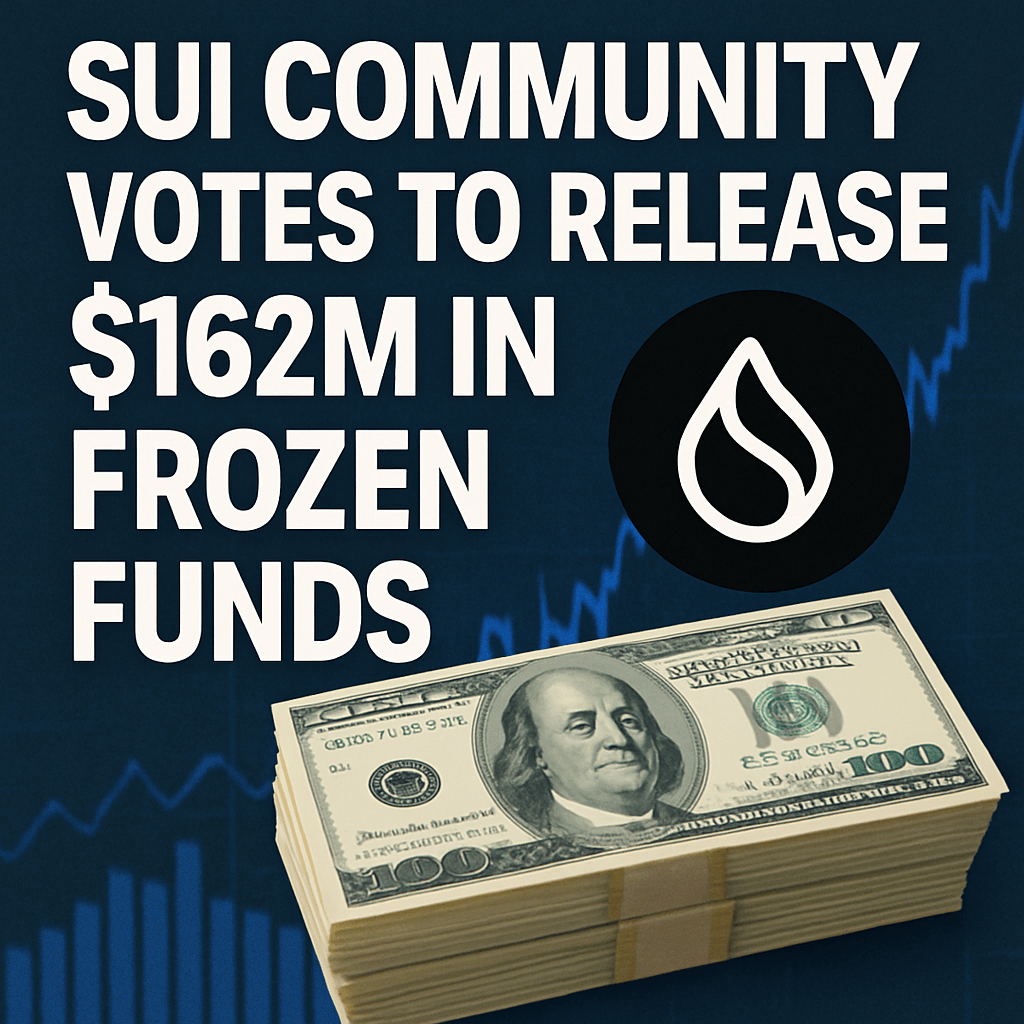Sui Community Votes to Release $162M in Frozen Funds


The ongoing debates surrounding decentralization in decentralized finance (DeFi) have intensified following a recent vote by the Sui community regarding the $162 million frozen during the Cetus exploit. The exploit, which had significant implications for users and stakeholders of the Sui blockchain, ultimately resulted in a community mobilization for action.
Understanding the Cetus Exploit
The Cetus exploit occurred when vulnerabilities in the protocol’s smart contracts were exploited, leading to the freezing of substantial funds that were initially intended for liquidity provisioning and user transactions. Smart contracts, when improperly audited, can expose funds to malicious actors, as seen in this case. According to blockchain security experts, the level of scrutiny applicable to these contracts before deployment is crucial in preventing such incidents. Despite internal audits, the resources dedicated to testing clearly did not suffice to prevent this significant breach.
Details of the Vote and Its Implications
In the wake of the exploit, the Sui community organized a vote to determine the future of the frozen assets. The results of the vote revealed a strong sentiment favoring the release of the funds back to their original holders, who had been impacted by the exploit. This decision has sparked a wide-ranging discussion about the nature of governance in decentralized ecosystems.
- Governance Models: The decision to return the funds highlights the varying approaches to governance within blockchain communities. Sui operates under a decentralized governance model, which allows token holders to directly influence decisions that affect the ecosystem.
- Decentralization and Security: While the movement towards decentralization in DeFi underscores the importance of community autonomy, it also raises questions about security protocols and risk management practices that must be adopted to safeguard stakeholders’ assets.
Community Reactions and Future Considerations
Reactions to the vote have varied widely within the Sui community. Proponents of the decision argue that returning the funds is a step towards fostering trust and reinforcing user confidence in the platform. Conversely, critics express concerns over moral hazard and the potential implications for future exploitation scenarios.
“By returning the funds without adequate deterrents, we might unintentionally invite further vulnerabilities,” commented a member of the Sui governance council, emphasizing the need for a balanced approach to risk and reward in the DeFi space.
Evaluating the Long-Term Impact of the Decision
The implications of this decision extend beyond the immediate community. Experts in the field suggest that other DeFi projects will likely observe Sui’s actions closely, particularly concerning how governance models adapt to similar crises. Furthermore, ongoing discussions about decentralized insurance mechanisms and automated safety nets are likely to be revitalized as other ecosystems strive to enhance their resilience against exploits.
- Potential Adoption of Insurance Solutions: The re-evaluation of insurance solutions within DeFi is essential for protecting users against future attacks. Solutions like Nexus Mutual and Cover Protocol offer insights into how best to secure liquidity pools and individual user investments.
- Community-Led Audits: The incident has spurred conversations about the necessity of community-led auditing processes that could provide an additional layer of scrutiny before significant funds are deployed into projects.
Conclusion
The vote regarding the frozen Cetus funds serves as a catalyst for a broader dialogue about decentralization, governance, and security in the rapidly evolving DeFi landscape. As communities, including Sui, navigate these complexities, the lessons learned could profoundly influence the frameworks and methodologies used in future projects.